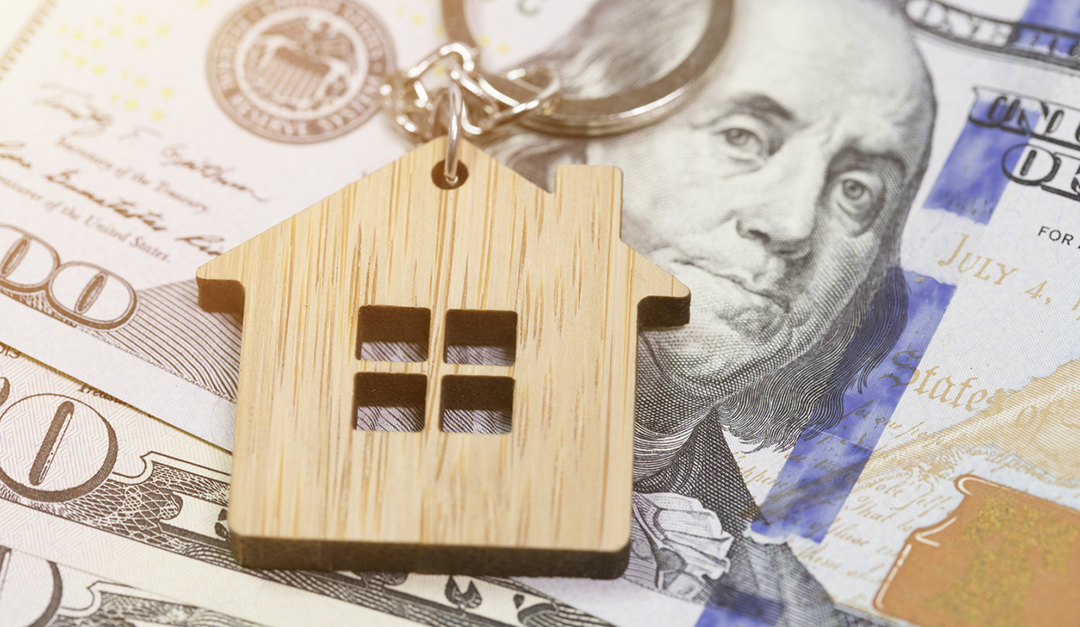Who Keeps The Earnest Money Deposit in a Home Purchase?
When buying a home, many folks have no idea what role earnest money plays in a real estate transaction. The earnest money payment forms part of almost all real estate contracts and agreements. It is a payment that you make to the seller of the property in good faith, proving you can back up your offer with cold hard cash. The idea is to show you are serious about buying the property. The money will be held in an escrow account.
If this is the first time you are purchasing a home, it may seem like you are handing over money and getting nothing in return. That, however, is not the case. Once the earnest payment has been received, the seller will take the property off the market, and the earnest payment will go towards the cost of the home. It forms the financial cement indicating you’re a sincere home buyer.
Does it always work out that way? No, it doesn’t, and since the earnest payment can be rather large, it is a good idea to understand what can go wrong before you hand over the cash.
It is also vital not to confuse a down payment with an earnest money deposit. A house down payment and earnest money are not the same things. The resource at Maximum Real Estate Exposure does an excellent job explaining what earnest money is, how it works, and how it differs from down payment funds.
How Much Should I Put Down?
It is only serious buyers who should put down an earnest money deposit. Let’s be honest; we are talking about a substantial amount of money. An earnest money deposit can be anywhere between 1 – 5% of the purchase price of the home.
So, if you are buying a home for $500,000, the earnest money will range from $5,000 to $25,000 and potentially more. That is a lot of money to put down to ask someone to take a property off the market.
Before you hand it over, you need to make sure that you have a contract covering the payment. That purchase and sale should include all of the obligations of each of the parties. From a buying standpoint, you will want to make sure there are essential contingencies, such as a home inspection and procuring financing.
When making an earnest payment, you’ll want to consult with your real estate agent on what is a traditional amount in the local market.
The Earnest Payment Makes the Purchase Contract Official
Handing over the earnest money effectively seals the deal. Once all of the financial issues have been settled, the property is now yours. That is unless something goes wrong. This is where it is crucial to have a buying agent on your side. He or she will look after you and make sure that everything stays on track.
Your buying agent will explain to you that the earnest money deposit is one of the four components that form part of the sales agreement. Without earnest money, the contract is likely not considered legal in most American states and foreign countries for that matter. One of the many things a buyer’s agent does is protect a buyer’s earnest money deposit by keeping up with contract performance time frames.
The Earnest Money Deposit – When Will It Come Through?
The earnest payment is best described as partial payment for the home you are about to buy. On average, the earnest money is handed over soon after an offer has been accepted. That is generally between 24 – 48 hours.
Some buyers who invest in prominent expensive properties may be asked how they obtained the money to make the deposit. This is to make sure there is no fraud, and that the money has come from legit sources.
Most of the time, buyers are asked to provide bank statements, deposit slips, and proof that the money has been in your account for at least 60 days. In some countries, it is easy to make offshore transactions, but that does not go for the United States. This can make it hard for foreign investors who often rely on financial resources from abroad or offshore.
Once the earnest money deposit is submitted, it is held by a third party, such as a real estate company or lawyer, until the completion of the home has gone through.
Specialist escrow companies have sprung up around the real estate industry, and many buyers and sellers turn to them.
What Happens If the Deal Falls Through?
Should the seller presume the earnest money is theirs the moment it has been submitted? Absolutely not. The seller will never see the money unless there is a default on the buyer’s part. Most of the time, a buyer’s lawyer or buying agent, will make sure there are clauses in the contract that protects the buyer.
There are many things that can still happen. If the home inspection brings up certain red flags, the buyer may just say thanks, but no thanks. The appraisal process might also affect the earnest money deposit. If there is an appraisal contingency that states the home must appraise for the purchase price and it doesn’t, the buyer will not have to proceed.
Financial problems such as the mortgage falling through will also mean the buyer can have his money back. Too many issues discovered in the home inspection are perhaps the most common reason for the earnest money being returned to the buyer. Yes, you can try to negotiate a new deal, but it doesn’t always work out.
The buyer being unable to sell his own home is another reason a sale could fall through. In real estate circles, this is known as a home sale contingency. The seller failing to stick to a moving out schedule is yet another problem that creeps up from time to time.
Does the Seller Ever Keep the Earnest Money?
Yes, the seller has the right to keep the money under certain circumstances. If the buyer decides to cancel the sale without a valid reason or doesn’t stick to an agreed timeline, the seller gets to keep the money. These are the most common ways a buyer will lose their earnest money.
Adhering to an agreed schedule is very important when it comes to buying and selling a home. The real estate business is all about making commitments and following them through. You may be one in the chain of many, and making sure that everything works out for all of you, is a bit like walking a tightrope in a circus. It is not easy, and you should not underestimate the skill of your local real estate agent.
If you are the buyer, it is imperative to have a professional with experience on your side. A buyer’s agent will help you to negotiate the earnest money deposit, make sure the entire home buying process runs smoothly, and ensure that you get the best value for money as far as the total purchase price of the property is concerned.
Final Thoughts on Earnest Money Deposits
So when answering the question “who keeps the earnest money when a home sale falls through?” it boils down to who violated the terms of the contract. If a buyer defaults on one of their commitments or time frames, they will lose their money. If, however, the buyer backs out of the transaction due to one of their contingencies, the seller will not be able to keep the earnest money.
Both buyers and sellers need to know the ins and outs of earnest money.
 Bill Gassett is a nationally recognized real estate leader who has been helping people buy and sell Metrowest Massachusetts real estate for the past 33 years. He has been one of the top RE/MAX REALTORS® in New England for the past decade. In 2018, he was the No. 1 RE/MAX real estate agent in Massachusetts.
Bill Gassett is a nationally recognized real estate leader who has been helping people buy and sell Metrowest Massachusetts real estate for the past 33 years. He has been one of the top RE/MAX REALTORS® in New England for the past decade. In 2018, he was the No. 1 RE/MAX real estate agent in Massachusetts.













Another great post, Bill, clearly written with important information to be understood by all buyers and sellers; thanks.
Thanks Missy – I appreciate the comps. Earnest money is one of those topics where real estate agents assume a buyer should understand the process. Many of course, don’t! I find there is often a misconception between earnest money and down payment funds.
This is a really helpful article for home buyers! Great job Bill.
Great article and very clearly written. Having been an English teacher in the past, I am rather passionate about spelling or grammar mistakes. It is such a good article I hope you will take this comment as it is meant.
If, however, the buyer backs out of the transaction do to one of their contingencies, the seller will not be able to keep the earnest money.
Word should be due instead of do. I’m sure this was just overlooked. Thanks for the article. I intend to share it with my clients.
Great article. Quality agents understand the fiduciary responsibilities he or she has to adhere to timelines. Complacency is not an option. A transaction is like an orchestra requiring all parties to stay in tune. Regarding EMD, it becomes iron clad of course when buyer removes any and all buyer contingencies (full CR).
Tim Hiemstra, CEO & BrokerNapa River Realty408 Georgia StreetVallejo, CA 94590Direct: 707.980.9267Office: 707.651.9565http://www.NapaRiverRealty.com
You didn’t mention Broker being able to claim part of escrow as commission.
With a backup contract is earnest money deposit required at time of submission?
So, which party has the responsibility of ensuring that the earnest money is received prior to the inspection?
I believe in MN that the decision as to who receives the EM ultimately comes down to the buyers and sellers brokers not necessarily the buyer or seller.
If you are securing a loan and due to the Coronavirus situation the broker pulls out to offer you cash outright for your condo. You want to go through, but the loss on your condo would be high, but your husband says we could make it back in 5 years or less on the new condo. Meanwhile the seller and agent and broker defraud you with misrepresentation. ( Your agent tries to make the deal for herself cash wise by not alerting you and the inspector she hired doesn’t question why the flooring has obvious issues . You find out on your own building permits were never obtained legally on the property through the HOA and violations exist and who knows what else!! Can you ask for your money back, because they all lied ? Horrible nightmare of losing your money!!
I have a comment…My friend put down a 5000 earnest deposit on a home he thought he wanted.,,He waived all contingencies because he just wanted to buy in this market and was afraid he would be out bid…Now 4-5 days after all contracts were signed he wants out!!!! He knows he will lose the 5000 but it’s better than losing 270000 in the long run. The question is, can he just tell his agent he no longer wants it??? Or is he stuck with the house,,,This is in R.I
Very well written and easy for anyone to understand.
There was a situation whereas the buyer and seller went into contract with earnest money placed in escrow. The buyer did not get a mortgage commitment within the time frame as stated in the contract. The Seller give the Buyer two extensions of time to do so. Closing date was changed at least two times. After approximately 4 months, the Seller said enough and put the property back on the market. The Seller lost revenue from rent due to the loss of time by the Buyer. In my opinion, the Seller was entitled to the earnest money.
What if the buyer fails to finish credit application so credit company denies credit application
is that a valid reason to receive money back
Our buyers pulled out of our contract for no valid reason, i.e, nothing discoverable during the inspection period. They said they didn’t like the fact that furnaces were the same age as the house circa 2004. This was disclosed to them prior to them writing the contract via disclosure form and verbally when we met with them at the home for a four-hour visit. We were told that in Georgia a buyer never needs a valid reason to cancel as long as they terminate the contract during the discovery period. Is this true?
Can a offer be presented with a nonrefundable deposit?
We went under contract and give 5000 as earnest money, they wanted us to give them the conditional loan approval and the underwriter decided that we needed to sell the house where we live now in order to qualify us for the loan, and stated as condition in in the cla, seller now says that selling the house was not in the original contract and this becomes contingent, Can they legally keep the 5000 dollars? even when we are providing them the CLA on time?
So I put my money in with my agreement and contingencies. One of which was I need to make it to closing in my home. The buyers of my home couldn’t get financing so I notified the seller of the property I was buying per my contingencies. Now the seller refuses to release my money unless I give him all the inspections I had of his property I preparation of my buying. His theory is he’s out money so I have to give him reports or he keeps my money. His agent and mine work with the same. Rocker that is agreeing not to return my money. I am very unhappy and think after ready your article I will end up in court rather than give into his bullying.
Thank you
I have a scenario: If a buyer did not have enough money on hand to pay the earnest money and borrowed the money from their parents who would the broker return the earnest money to if a sale did not go through, to the buyer or buyer’s parent?
This article is so informative and appreciated. I had a situation where the MLS Listing was incorrect and the appraisal was in sync with the MLS (thus, appraiser did a lousy job, either not going to the house or copying the MLS (a report which I paid for). I called the appraiser and he apologized blaming it on being rush during COVID! His report stated there were no major problems with the house; yet, the inspection report stated major roof repairs and others totaling in excess of $40K. The seller was not going to pay, and I certainly wasn’t. Luckily, I backed out 10 days before closing and it has taken over 90 days to fight for my earnest money of which I was only able to collect 50%. The buyer signed the termination agreement but had refused to sign the distribution form returning 100%. I offered a 50/50 split or the next day I was going to litigate and that is when seller signed! I still lost a chunk of money, but I found out the inspection report and appraisal are totally separate, and the title company only goes by the appraisal. Had I not backed out when I did, I would have been sitting at the closing table forced to buy the house with all suggested repairs or if I totally refused to buy, been liable and sued by the seller. By the way, I informed my realtor that I was not comfortable at least 3 weeks prior (after hearing what the inspector had to say) and she kept asking me to ‘wait’. Finally, I had to insist she inform the seller’s realtor I was not buying and that was exactly 10 calendar days prior to closing. The lesson — beware of contract language.
Dear Bill, great explanation and stated so well! Our buyer just canceled saying she is no longer interested in buying the home. No other reason, contingencies or seller requirements. They just signed a cancellation with a request for their EMD returned!! Can escrow just release the $10,000 EMD to me now? What would they need first, if anything? Thank you so much for advice on getting Escrow to send EMD to me! Very appreciated!!
great post
What if it turns out the buyer knows their inspector and their report contains falsified information?